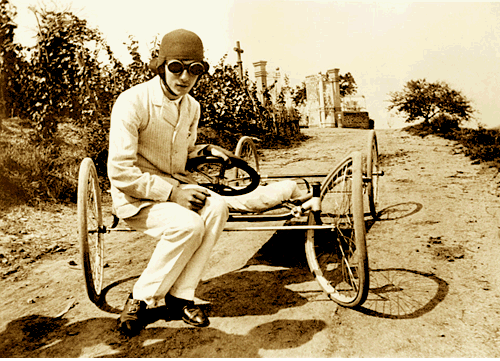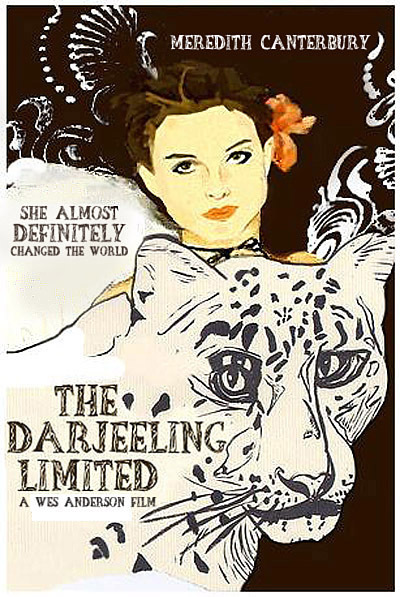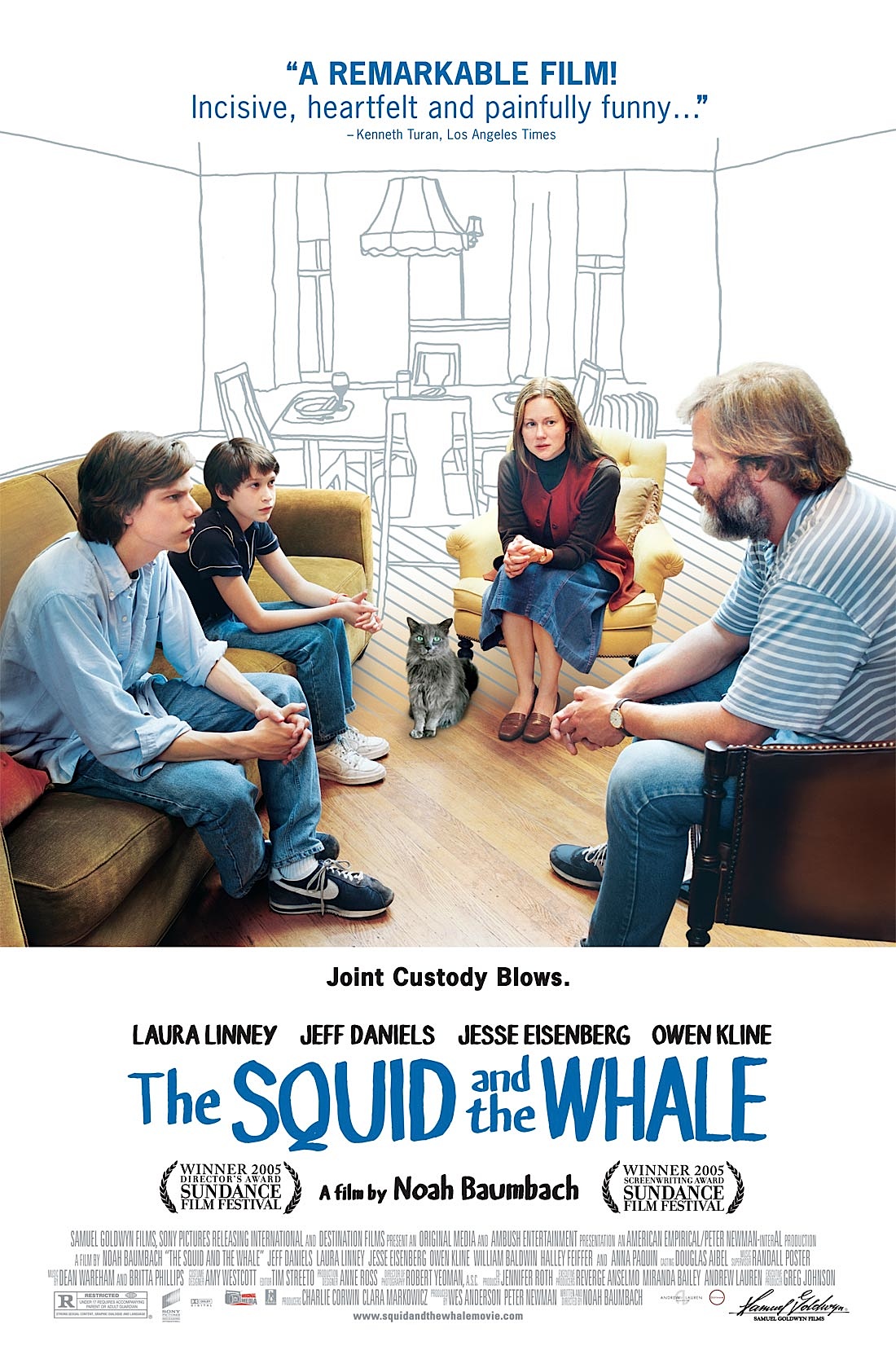
FRESH AIR
Wes Anderson has been called an auteur,[1] heavily involved in every aspect of his films’ production: writing, cinematography, production design, music selection, etc.
Influences
Anderson has acknowledged that French New Wave directors Francois Truffaut and Louis Malle influenced his penchant for sympathetic tragicomedy, unconventional mis-en-scene, and personal approach to filmmaking. He often cites Mike Nichols‘ The Graduate as a recurring inspiration. Anderson is also noted for drawing on famous works of American literature, particularly those of F. Scott Fitzgerald and J.D. Salinger. Fitzgerald’s famous quote, “There are no second acts in American lives,” applies to many of Anderson’s characters, who tend to fall quickly from their initial success and renown (although many of them make limited comebacks). Salinger influences are seen in Bottle Rocket (Anthony and his sister’s relationship parallels Phoebe and Holden Caulfield The Catcher in the Rye) (and both girls have a friend named Bernice) and Rushmore (Max gets kicked out of his prestigious school as does Caulfield [and as did Owen Wilson, as well]). The Royal Tenenbaums is also allegedly based on J.D. Salinger‘s Glass family.
penchant for sympathetic tragicomedy, unconventional mis-en-scene, and personal approach to filmmaking. He often cites Mike Nichols‘ The Graduate as a recurring inspiration. Anderson is also noted for drawing on famous works of American literature, particularly those of F. Scott Fitzgerald and J.D. Salinger. Fitzgerald’s famous quote, “There are no second acts in American lives,” applies to many of Anderson’s characters, who tend to fall quickly from their initial success and renown (although many of them make limited comebacks). Salinger influences are seen in Bottle Rocket (Anthony and his sister’s relationship parallels Phoebe and Holden Caulfield The Catcher in the Rye) (and both girls have a friend named Bernice) and Rushmore (Max gets kicked out of his prestigious school as does Caulfield [and as did Owen Wilson, as well]). The Royal Tenenbaums is also allegedly based on J.D. Salinger‘s Glass family.
Anderson’s stylized films also borrow youthful aesthetic qualities from comics such as Charles Schulz’s Peanuts (The Royal Tenenbaums/Rushmore) and Herge’s The Adventures of Tintin graphic novels (The Life Aquatic with Steve Zissou). A less known aesthetic influence is the French photographer Jacques Henri Lartigue: the name Zissou derives from Lartigue brother’s name, and his old photos reveal similarities with Anderson’s visuals.
Acclaim and criticism
Critical reviews of Anderson’s early work were positive, with some exceptions. His second film Rushmore was a critical darling, and many argued that Anderson would soon become a major artistic voice in American cinema. Many critics noted a strong sense of sympathetic but intelligent humanism in Anderson’s films that linked them to the work of Jean Renoir and Francois Truffaut. Filmmaker Martin Scorsese is a fan of Anderson’s, praising Bottle Rocket and Rushmore and calling Anderson “the next Scorsese” in an Esquire magazine article. The Royal Tenenbaums was also a critical favorite and garnered Anderson an Academy Award nomination. The film was his first high-profile commercial success, featuring several established movie stars.
 In September 2006, following the disappointing commercial and critical reception of The Life Aquatic with Steve Zissou, Steely Dan‘s Walter Becker and Donald Fagen released a tongue-in-cheek “letter of intervention” of Anderson’s artistic “malaise”. Proclaiming themselves to be fans of “World Cinema” and Anderson in particular, they offered Anderson their soundtrack services for his forthcoming The Darjeeling Limited film, including lyrics for a title track.[3]
In September 2006, following the disappointing commercial and critical reception of The Life Aquatic with Steve Zissou, Steely Dan‘s Walter Becker and Donald Fagen released a tongue-in-cheek “letter of intervention” of Anderson’s artistic “malaise”. Proclaiming themselves to be fans of “World Cinema” and Anderson in particular, they offered Anderson their soundtrack services for his forthcoming The Darjeeling Limited film, including lyrics for a title track.[3]
Anderson has also been criticized for unnecessarily shallow portrayals of race. In his films to date, Anderson has adhered to quirky and unique examinations of white, mostly upper-class protagonists and their worlds, a formula with which he has had his greatest successes in conveying human foibles and weaknesses. However, it has been noted that the director’s fantasias in the world of odd, privileged white characters have come at the expense of depth and realism in his portrayals of the nonwhite characters and cultures that he includes in his films. A short but incisive editorial appeared in the online magazine Slate discussing this point [4] during the run-up to Anderson’s The Darjeeling Limited, a film in which the familiar Andersonian protagonists are surrounded by the director’s particular iteration of India and its culture.
Recent work
In 2005, Anderson produced The Squid and the Whale, written and directed by Life Aquatic co-writer Noah Baumbach. It won two awards at the Sundance Film Festival. In 2006, he directed and starred in a “My Life, My Card” American Express commercial.
Owen Wilson will reunite with Anderson on the 2007 film, The Darjeeling Limited. The script is written by Anderson, Roman Coppola and Jason Schwartzman.[2] Anderson’s stop-motion animation adaptation of the Roald Dahl book, Fantastic Mr Fox is slated for 2009 release. [via WIKIPEDIA]
THE DARJEELING LIMITED
